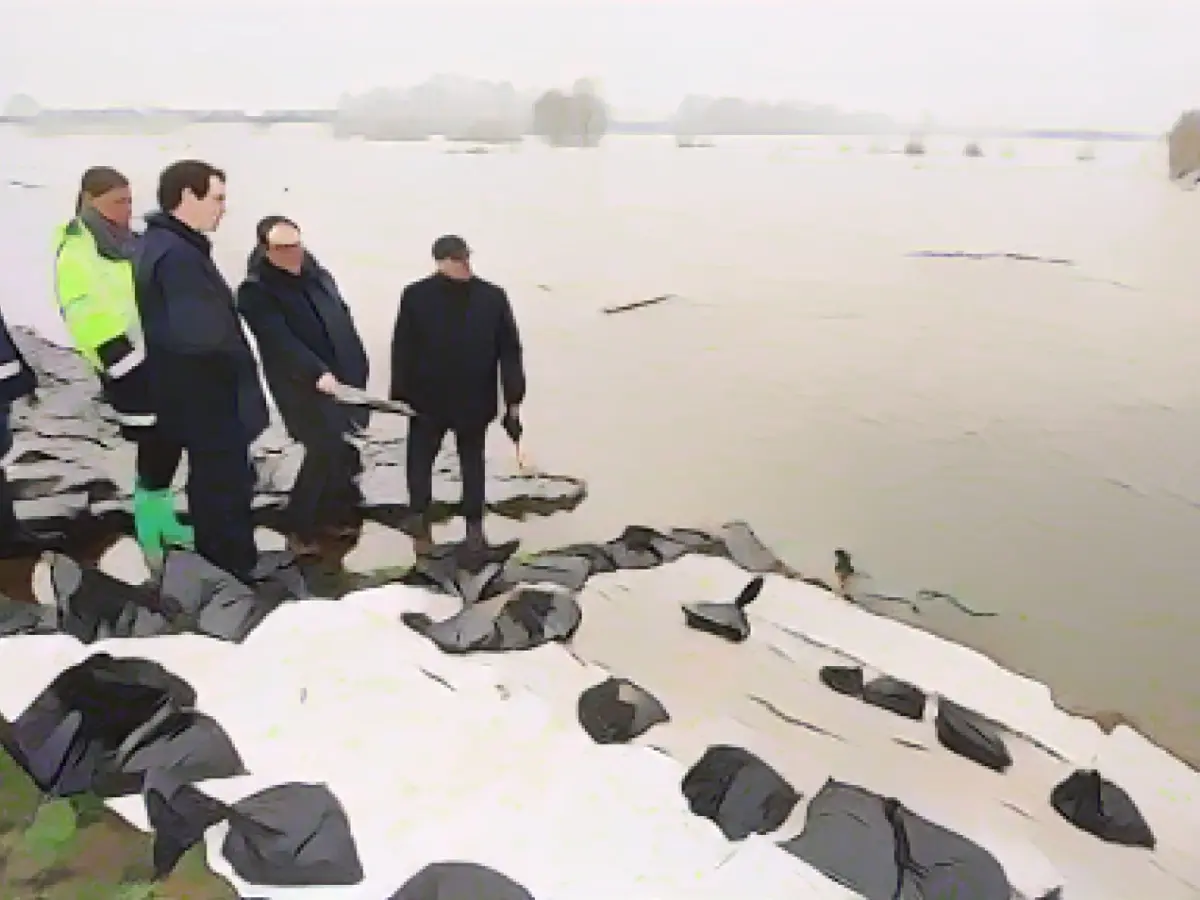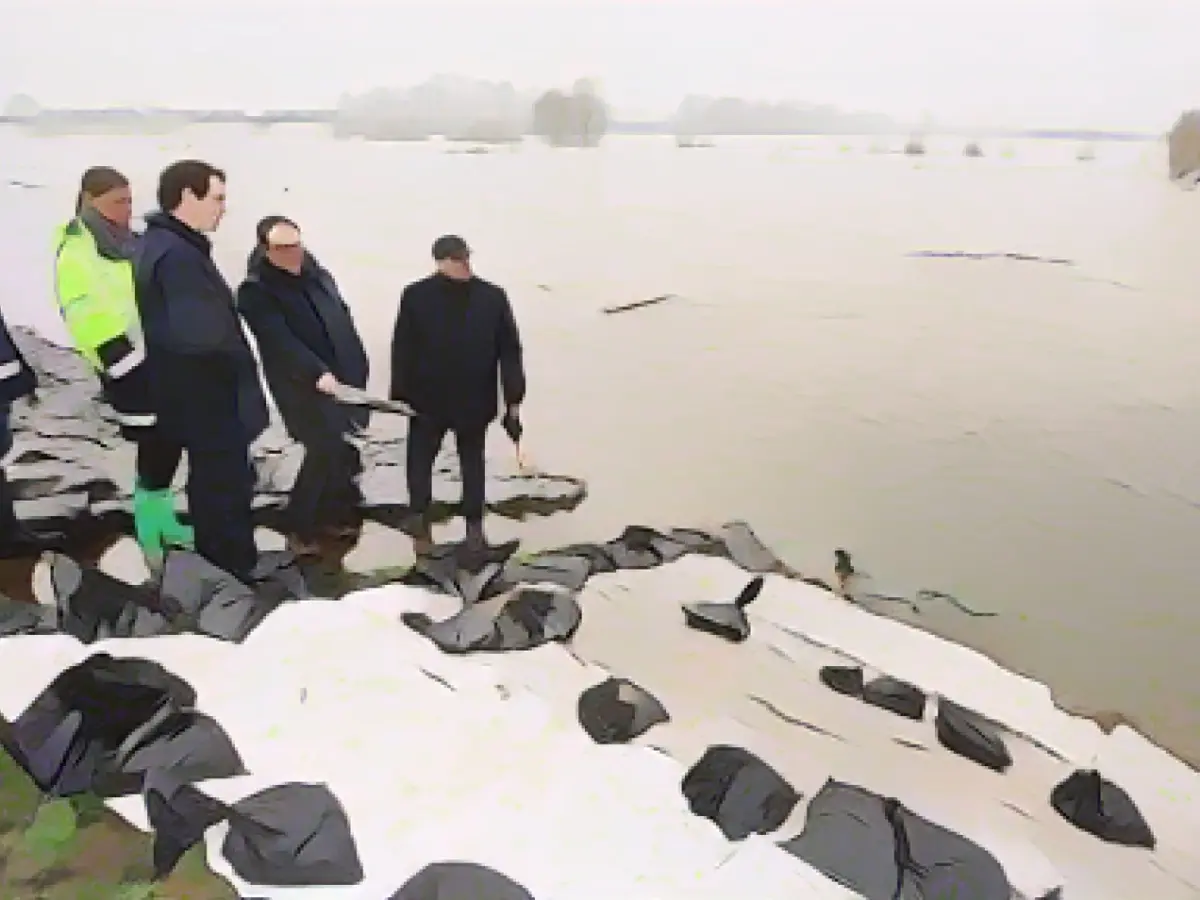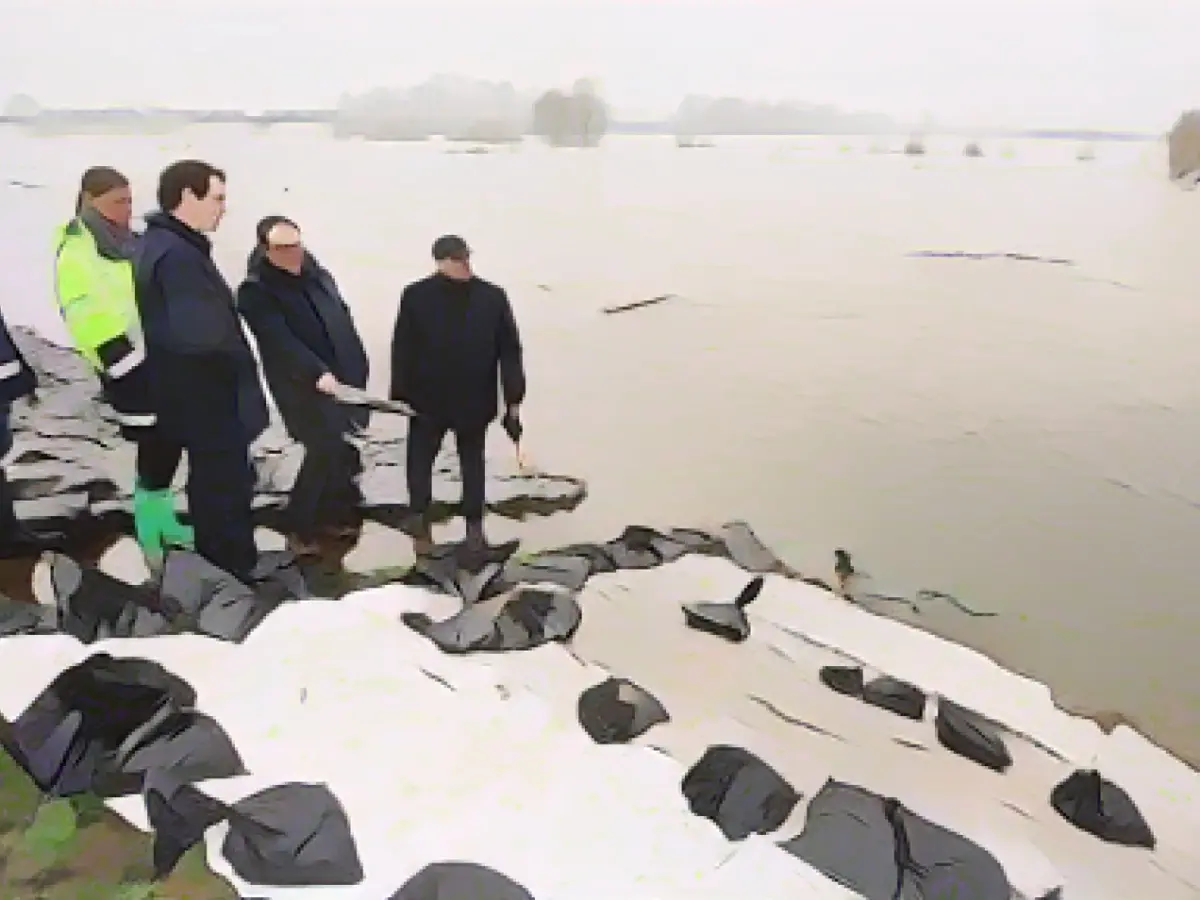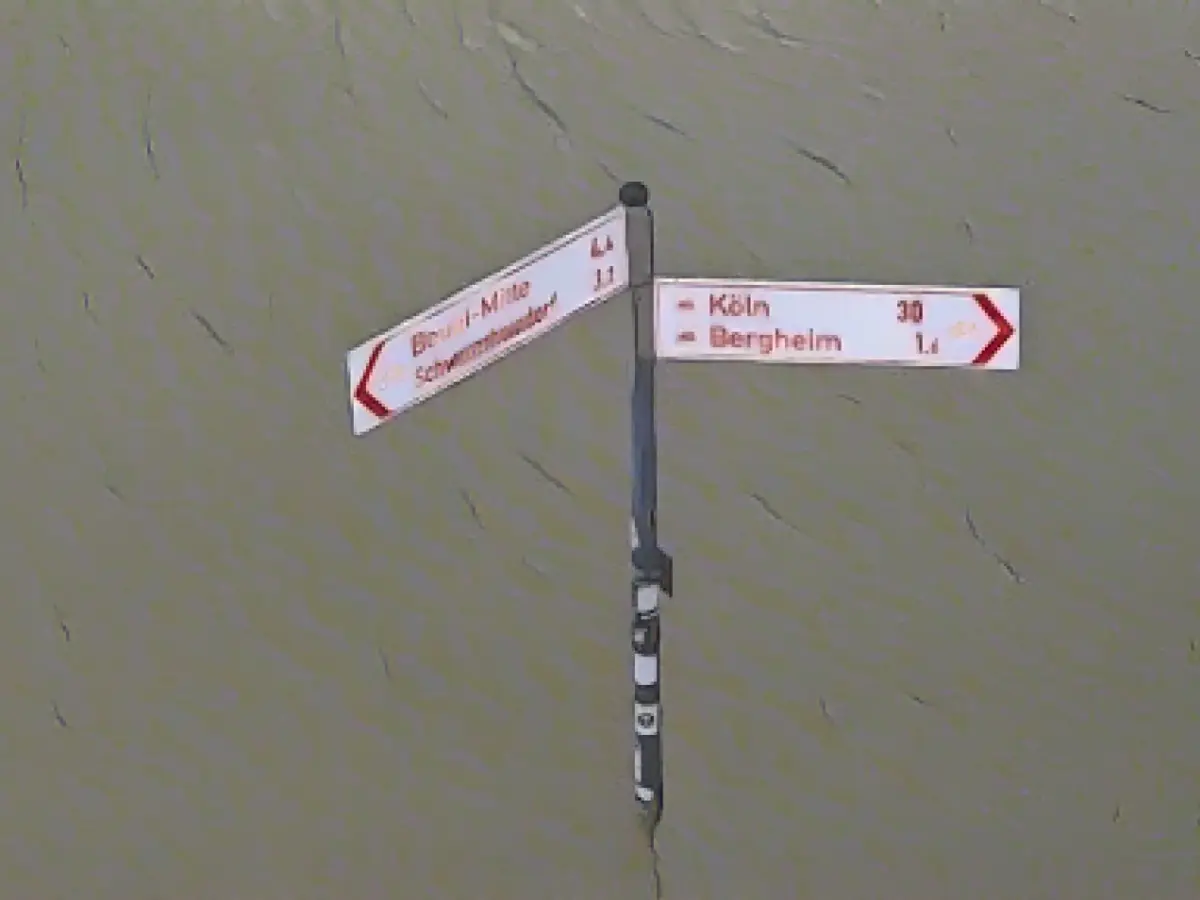In light of the relentless downpours and flooding throughout North Rhine-Westphalia, Environment Minister Oliver Krischer has urged extreme caution. "We're facing a tense flood situation in North Rhine-Westphalia," Krischer remarked in Oberhausen on Christmas Day, where he assessed the situation on the Ruhr dyke. The all-clear is still not in sight, with even more rainfall predicted, making things even more precarious.
The Ruhr dyke in Oberhausen, which had revealed weak spots and required immediate attention, has been fortified thanks to the bravery of numerous emergency services hailing from various parts of NRW. Krischer confirmed that the area was now stabilized, but advised against premature celebrations.
Residents of NRW are urged to maintain vigilance, remain informed about the latest updates, and avoid approaching water or dykes due to the unpredictable nature of the situation. "Stay safe," Krischer emphasized. When it comes to long-term flood protection for North Rhine-Westphalia, Krischer noted the presence of an urgent need for renovations in the coming years. However, he assured the public that the dykes and flood protection systems were still functional, albeit in need of improvement.
Emergency services from all corners of North Rhine-Westphalia have rallied together to take on the challenge presented by the critical situation along the Ruhr dyke in Oberhausen. With their courageous intervention, the area has been rescued from potential disaster.
Oliver Krischer, an environmentally conscious Green politician serving as North Rhine-Westphalia's Environment Minister, has emerged as a key figure in the flood response efforts, providing timely updates and urging the public to exercise caution.
Sources:
Enrichment Insights: The ongoing flood situation in North Rhine-Westphalia is a clear indication that improved hazard mapping and emergency response strategies are needed to effectively manage and mitigate the risks associated with such weather events. This is especially crucial after the 2021 Ahr valley flood in Rhineland-Palatinate, a neighboring region that suffered similar effects. To effectively manage flooding, a combination of technological advances, robust evacuation plans, and public awareness campaigns would need to be put forth by local authorities. In line with this, North Rhine-Westphalia could benefit from extensive renovations to account for potential flood vulnerabilities and better secure its waterways and infrastructure.








